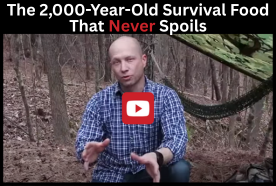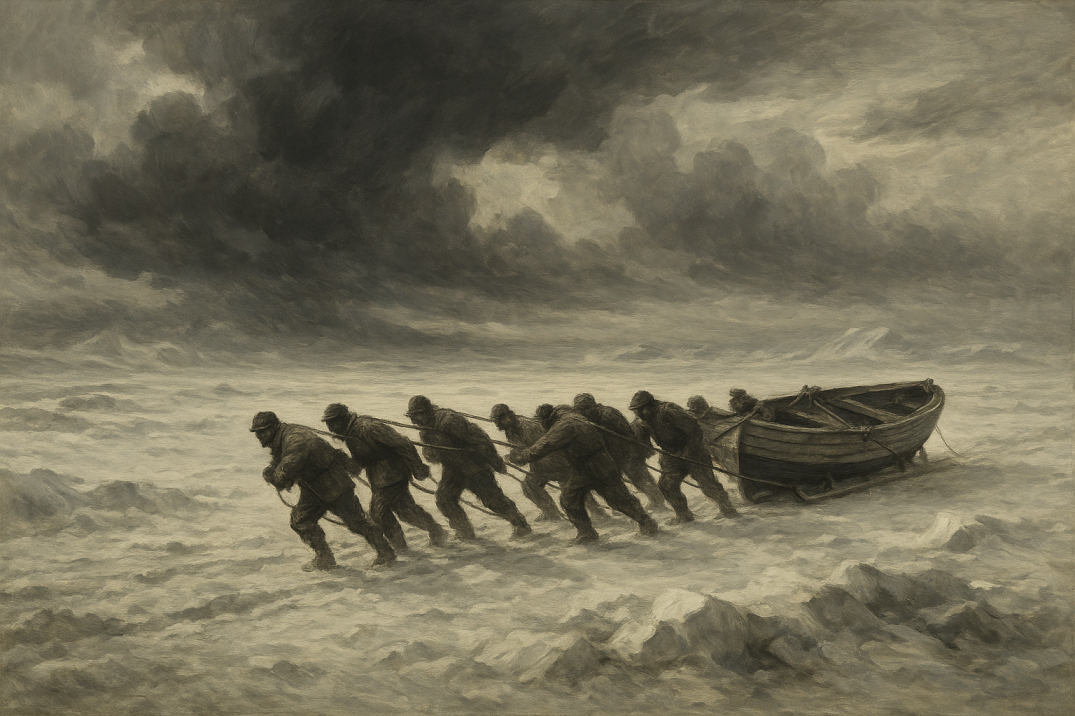When the world starts breaking apart, tools and supplies matter, yet the mind matters even more. History proves this repeatedly. Pioneers crossing continents, pilots stranded behind enemy lines, and sailors adrift for months often survived because of inner strength as much as skill. Mental habits carried them through fear, isolation, and scarcity.

Preppers spend countless hours learning how to purify water, grow food, and defend a homestead. All of that is vital. Surviving a real collapse, however, also requires internal strength. Five traits appear again and again in stories of endurance: self-discipline, curiosity, adaptability, emotional control, and purpose. Each one can be developed long before disaster strikes, and each one may determine whether you endure or fall apart when the world changes.
1. Self-Discipline: The Backbone of Survival
Self-discipline keeps you moving when every part of you wants to stop. It is the habit of sticking to a plan despite exhaustion, hunger, or fear. Psychologists often refer to it as “self-control,” meaning the ability to focus attention, manage emotions, and stay on course even when distractions arise.
During a long-term crisis, self-discipline gets you out of bed before sunrise to check the garden, ration supplies, or repair fences. Without this quality, small problems quickly grow into major ones.
Admiral James Stockdale, a prisoner of war in Vietnam for seven years, observed that many who expected early release failed to survive. They pinned their hopes on specific dates, and when those dates passed, they lost the will to continue. Stockdale endured by facing reality honestly while maintaining faith in eventual victory. That balance between determination and realism captures the essence of self-discipline.
You can begin strengthening this trait now. Create routines and stick to them. Maintain tools and equipment even when you would rather rest. Keep a log of tasks and follow through. Limit how much negative news you consume. Self-discipline develops through consistent, deliberate choices.
2. Curiosity: The Mind of an Explorer
Curiosity may seem optional, yet it drives creativity and problem-solving. Curious people ask questions, experiment with tools, and understand their surroundings more deeply. They adapt quickly because they see more possibilities.
Sir Ernest Shackleton’s Antarctic expeditions grew from a deep desire to explore. When his ship, the Endurance, was crushed by ice, that same curiosity led him to improvise. He devised ways to haul lifeboats across frozen terrain and navigate using the stars.
On a homestead, curiosity might mean tinkering with your water system before it fails, experimenting with solar panels, or testing new preservation methods. Asking “what if?” long before you must is a habit that builds resilience.
Practical step: Set small projects that involve trial and error. Build a simple ram pump or learn to identify edible wild plants. Curiosity becomes stronger when you turn ideas into action.
3. Adaptability: Changing Course When the Plan Fails
Adaptability is the ability to adjust when circumstances shift. It is one of the main traits that separates those who survive from those who do not. A rigid mindset often leads to disaster when conditions change.
When Shackleton’s plan to cross Antarctica collapsed, he immediately shifted his goal to saving his crew. He threw out unnecessary gear, accepted new realities, and led his men toward safety. His willingness to abandon the original plan saved their lives.
For preppers, adaptability can mean leaving a homestead during a wildfire, switching to a backup water source when the main one dries up, or reassigning group roles after an injury. It is the capacity to reassess, pivot, and try again.
You can train adaptability now. Prepare multiple backup plans for water, heat, food, and communication. Assume the first plan will fail and think through alternatives. Survival often depends on choosing the next workable option rather than waiting for ideal conditions.
4. Emotional Control: Staying Steady When Fear Hits
Fear, anger, and despair often appear in disaster, and they can ruin your chances of survival if they take over. Panic leads to poor decisions and wasted energy. Emotional control allows you to stay focused and think clearly.
Survival instructors often teach the STOP method: Sit, Think, Observe, and Plan. Even a few minutes of controlled breathing and deliberate thought can prevent fatal mistakes.
Solo sailor Steven Callahan, stranded in a life raft for seventy-six days, learned this through experience. At first, fear nearly overwhelmed him. Eventually, he accepted his situation and focused on small daily tasks. That change in mindset kept him alive.
You can practice emotional control through small, deliberate stressors. Cold showers, timed challenges, and controlled exposure to discomfort train your body’s reactions. Breathing exercises, meditation, and prayer can also strengthen emotional balance. In a group, calm behavior spreads quickly, and a composed leader can stop panic before it takes hold.
5. Purpose: The Fuel That Keeps You Going
When days stretch into weeks and suffering seems endless, purpose provides an anchor. It gives meaning to hard work and keeps you moving forward.
Viktor Frankl, who survived Nazi concentration camps, observed that those who held on to a reason — such as love for family, a mission, or the belief in rebuilding — endured longer than those who lost hope. He wrote that suffering loses its sting when it serves a greater purpose.
For preppers, that purpose might involve protecting family, preserving knowledge, or rebuilding a community. It could be as simple as planting a garden so your grandchildren will have food.
To strengthen purpose, write down your reasons for preparing and read them when motivation fades. Practice gratitude and look for opportunities to help others. Purpose grows when it reaches beyond your own needs.

Final Thoughts
Survival involves far more than stockpiles and tools. People who endure long crises share a mental toolkit that anyone can develop.
Self-discipline keeps you moving. Curiosity opens new options. Adaptability helps you pivot when plans collapse. Emotional control stops panic before it spreads. Purpose fuels you to continue when hope is low.
These traits are not gifts reserved for a few. They are skills that grow through practice and reflection. Train your mind with the same dedication you give to physical preparation, and you will be ready for far more than a storm or a power outage. You will be ready for whatever the future brings.






Read the full article here




